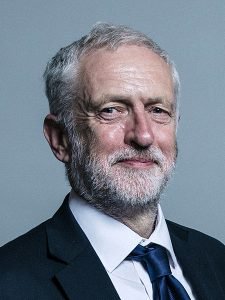As the main party leaders hit the campaign trail, how will their proposed policies and campaign pledges affect your business?
The big political parties are vying for the support of businesses in the run-up to the 2019 election – and there are big differences in their approach to appeasing the concerns and aspirations of industries across the country.
The CBI Conference on Monday 18th November 2019 saw keynote speeches from Boris Johnson, Jeremy Corbyn and Jo Swinson as the Conservatives, Labour and Lib Dems all set out their stall to promote their policies to businesses.
So, in summary, what will the main political parties do that might affect your business, positively or negatively?
What do we know – and what don’t we know – as we head into the first Winter election in a generation?
Here are the headline stories from some of the bigger political parties.
Conservatives
One notable impact on businesses of all sizes is the Tories’ announcement that the proposed cuts in corporation tax, due to be implemented in April next year, have been postponed. The rate paid by companies on their profits was due to decrease 2%, from 19% to 17%.
Boris Johnson stated that the UK already had a low rate of corporation tax compared to “any major economy” and said that the additional tax monies raised (around £6 billion) would go towards funding public services like the NHS.
However, Johnson also told the CBI conference that his party would look to reduce rates and raise the employment allowance for smaller businesses.
Other Conservative policies already announced that may affect your business include:
- Increasing the national living wage to £10.50 an hour by 2024 for those over the age of 21
- Introducing new ‘collective’ workplace schemes and new controls on transferring pensions
- £1bn research and development fund for the UK car industry
- A review of business rates in England, with the potential to include discounts of 50% to small shops
- Cuts of £1,000 for National Insurance contributions by employers
- £5bn to support getting broadband to rural and hard-to-reach areas across the UK
On Brexit, if the Conservatives gain a majority in parliament, they will look to take the UK out of the EU by the deadline of 31st January 2020, under the deal agreed by Johnson. As we have seen many times already, though, there are no guarantees that this will happen – and there could well be a long period of debate (lasting years) while new trade deals are negotiated outside of the EU. What impact this might have remains uncertain, but it is clear that the Conservatives are now committed to “getting Brexit done.”
Labour
Labour’s impact on business could be widespread, with their aim of renationalising certain private sector operations such as railways, mail and utility suppliers, and the part-nationalisation of BT with the target of rolling out full fibre broadband nationally by 2030.
The party has said that it will pay a fair market price for any businesses that will be nationalised, but there will be some concern about the effects of this on employees and businesses.
Jeremy Corbyn said suggestions that he is “anti-business” are “nonsense,” spelling out how Labour’s proposed changes to the economy would improve infrastructure and transport links, leading to what he described as “the best educated workforce you have ever hoped for” with “world-leading infrastructure” and “fast, reliable transport links” to support business.
Labour’s pledges that could impact businesses include:
- Introducing a ‘real living wage’ of £10 an hour for all workers aged over 16, beginning 2020
- Banning zero hours contracts, with people working regular hours for more than 12 weeks earning a regular contract
- Progressing towards a 32-hour average working week within the next decade, without loss of pay
- Increase statutory maternity pay from 9 to 12 months, increasing paternity leave from 2 to 4 weeks and increasing statutory paternity pay
- Providing £250bn in loans for a new national investment bank and regional development banks
- Offering free full-fibre broadband by 2030 to homes and businesses across the UK
- Increasing corporation tax to 26%
Labour’s policy on Brexit is to renegotiate the deal and legislate for a public vote within 6 months, with the choice of a “sensible leave deal” or “Remain.” This would remove no-deal as an option from the negotiating process, which could appease some businesses who are fearful of what leaving without a deal might entail.
Liberal Democrats
Jo Swinson has positioned the Liberal Democrats as “the natural party of business,” as their aim is to “stop Brexit.”
During her speech at the CBI conference, Swinson told business leaders she could “only imagine… how frustrating it is to watch the government recklessly pursue a policy that would be damaging to your business.”
The Liberal Democrats’ solution to the Brexit impasse is to revoke Article 50 and continue the UK’s membership of the EU, which should at least leave businesses with certainty about the regulations in place to continue trading with European and global partners – though those advocating Brexit might see missed opportunities and contend against this happening.
To support businesses and the economy, the Liberal Democrats have promised to:
- Abolish business rates and replace them with a commercial landowner’s levy
- Invest £5bn in a ‘Green Investment Bank’ to bring in private investment in public projects
- Raise corporation tax to 20% while abolishing the capital gains allowance
- Double the amount spent on innovation and research
- Spend £130bn on infrastructure including transport, housing and renewable energy
- Spend £2bn rolling out high-speed broadband across the UK
Brexit Party
How business might be affected under the Brexit Party is tricky to gauge right now. While the purpose of the party is clear – to exit the European Union by 1st July 2020, and negotiate a new free trade agreement with the EU similar to the Canada deal (or leave on World Trade Organisation rules if not) – there are no headline policies on work and benefits announced by the party yet.
However, the party is aiming to spend £200bn on road and rail projects for ‘left-behind regions’, using money obtained from scrapping the HS2 project, their proposal not to pay an EU divorce bill, and halving spending on aid.
The future of business under the Brexit Party is therefore somewhat dependent on any future trade deals which are agreed, but supporters of the party advocate new arrangements as providing opportunities and scope for change that could bring benefits to businesses across the UK. Leaving the EU may come sooner rather than later, but the short-term view for business is more difficult to ascertain.
Green Party
The Green Party have gained more prominence in recent times, with the climate becoming a more prominent issue for the world at large and high-profile campaigns by Extinction Rebellion drawing issues into the public consciousness.
The Green Party are looking to overhaul the tax and benefits system, with policies which will affect businesses including:
- £86.2bn a year for a universal basic income, paid for by a carbon tax, to replace the tax and benefits system
- Merging income tax, National Insurance, capital gains tax, inheritance tax and dividend tax into a single income tax
- Replacing council tax and business rates with a land value tax
- Introducing a quota of 40% of female members on company boards
Like the Liberal Democrats, the Green Party also opposes Brexit and is campaigning to remain in the EU, with a proposed referendum. However, the Green Party will also be looking to change the way the union works to address climate change.
SNP
The third-biggest party in parliament following the 2017 General Election, it would be remiss not to look at some of the policies that might affect businesses that are proposed by the SNP.
While campaign issues around business are mostly devolved to Scottish parliament – where elections are due in 2021 – the SNP campaign for the General Election lists its priorities for work and benefits as:
- Opposing plans to increase the state pension age
- Opposing any proposed increase in VAT or National Insurance
- Making the minimum wage the same for 16 to 24-year-olds as for over 25s, banning unpaid trial shifts
- Invest £2bn in a Scottish national investment bank
The SNP has also been opposed to Brexit. Unlike the Lib Dems and Greens, though, the SNP will be looking for a referendum on Scottish independence first before campaigning to retain membership of the European single market as an independent nation. This is seen as a key pledge by the SNP, to help protect access to European markets for Scottish businesses.
What we don’t know
We won’t know who is going to be elected on 12th December until it happens, but that shouldn’t stop us keeping an eye on what will happen to businesses across the country if certain policies come into play.
Through all the political landscape, it is very much ‘business as usual’ until such time as new legislation or economic policy is implemented. And with seismic shifts in policies and the way politics are conducted generally, planning activity shouldn’t be curtailed by looking at what may or may not happen – we need to look at the here and now.
For further information on business insurance that helps to cover most eventualities (especially ones we are already aware of), please get in touch with Bollington. Smaller businesses can contact 01625 400206 for help and advice, while larger businesses can take advantage of our account managed service by calling 0161 929 1851 for assistance.
Further information
Policies above have been compiled using information from the BBC News General Election 2019 policy guide. As at the time of writing, Labour, the Liberal Democrats and the Green Party (of the above parties) had launched their manifestos, so the policies stated by other parties are not official campaign pledges. Other party objectives stated, however, give some indication of how business might be affected if the parties were to assume control of government.














